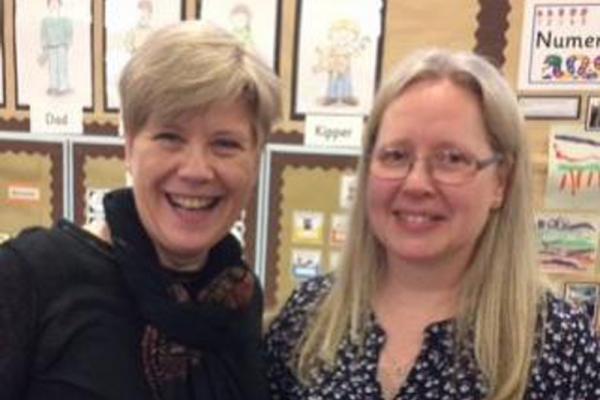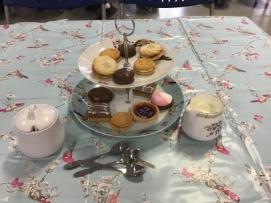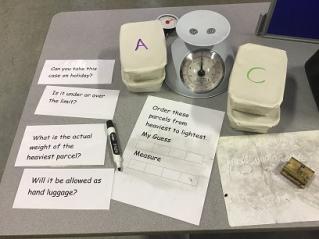Blog
Our pursuit of parental engagement at Carleton Primary
5 Feb 2020
By Lesley Brady, Support for Learning teacher at Carleton Primary in Glenrothes
The first steps in raising parental engagement
At Carleton Primary we really wanted to increase parents’ engagement and understanding in their child’s learning, in a way that linked home and school learning in a meaningful way.
Connect Scotland advised us that the first step to increasing parent involvement is building relationships with parents before anything else, in the hope of creating a “family-like school and a school-like family”. We have been looking at a variety of ways to do this.

Activity around National Numeracy Day
We had already set up community cafés, where classes take it in turns to take ownership of the café as an enterprise. They manage the planning, budgeting and involvement of others, leading to running the café for the afternoon. When National Numeracy Day came along we thought it’d be a great opportunity to do a numeracy café.
We set up stations which had real-life examples of numeracy in action, alongside some games for children to play. The activities included:
- Looking at Council Tax and phone bills
- Weighing and measuring for a recipe
- Making pizzas with fractions of ingredients
- Considering hand luggage weight restrictions for a flight
- Costing shopping and comparing prices
- Measuring area for carpet tiles

Tutors from our local Adult Learning facility were on hand to encourage parents to think about getting help for their numeracy skills if they felt inclined.
Understanding the barriers
Those who came really loved it. From the unique website link that National Numeracy set up for us we saw that we got 34 parents to sign up to the Challenge, which was a great start as we have around 320 pupils.
While we were really pleased with what we did, the numeracy cafe didn’t attract as many families as we had hoped. Partly because this time round no class “owned” the café (the invitation came from staff instead of the pupils), but predominantly the major challenge in getting parents involved is that people feel so anxious about numeracy. More than with other subjects, they worry about how it might’ve changed since they were in school, and what challenges they might come across when helping their child to build their understanding.
So we ran the activities again at parent’s evenings, and the parents interacted much more with them, especially if their child was there too.

Overall, we’re happy with what we did. We just need to figure out how to engage more parents!
What's next for us?
We’ve trialled new homework strategies in the school, where a numeracy journal goes home once a month. It’s an immediate way for parents to see what’s happening in class and to help them build a clearer understanding of the way different concepts are being taught to their child. We are continuing to look for ways to improve on this.
Family Learning does not always mean that we have to get people into our school building and we recognise how tricky that can be for working parents. Other different approaches we are trying support a family to interact with something very specific, which we know will help their child.
So we have started to look at different ways to help, starting with cheery, positive phonecalls with parents and building a relationship, which leads to working together on specific short, daily activities with their child. We aim to build on this across the school to support any families who need it and early interest is good.
Want to become a National Numeracy Day champion?
Sign up to our newsletter for updates on National Numeracy Day, how to become a champion, and resources for yourself or an organisation.
Family Maths Toolkit
Our Family Maths Toolkit is of full of tips, advice and ideas designed to help parents, families and children aged 13 and under enjoy everyday maths activities together. The site also offers resources to help teachers support family engagement with children's maths learning.




